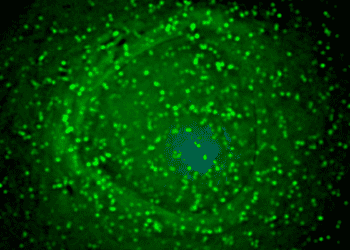Financial incentives effective in increasing smoking cessation rates in the UK
1. In this prospective randomized controlled trial, in actively smoking pregnant women, findings suggest that offering incentives as part of a smoking cessation program resulted in a significant increase in biochemically confirmed smoking cessation rates in late pregnancy in the United Kingdom (UK).
Evidence Rating Level: 1 (Excellent)
Maternal tobacco smoking is responsible for adverse health outcomes, including death, among women and offspring. Midwives in the United Kingdom (UK) do not have sufficient time and training to counsel mothers who are current smokers, and thus these mothers are offered counseling by dedicated stop-smoking services. However, women who continue to smoke while pregnant may not engage with cessation services, and this study aims to investigate the effect of financial incentives used for maternal smoking cessation services, as there is currently a paucity of high-quality evidence surrounding this topic. The Cessation in Pregnancy Incentives Trial Phase 3 (CPIT III) recruited pregnant women from 7 UK stop smoking services serving maternity hospitals in Scotland, Northern Ireland, and England. Included were English-speaking women that were self-reported smokers, 16 years or older, and before 24 weeks gestation. Women were offered up to £400 pounds in shopping vouchers at four time points throughout the trial: a £50 voucher to engage with the stop smoking service, another £50 voucher if not smoking after four weeks, a £100 voucher if smoke-free after 12 weeks, and a £200 voucher if the patient was verified to have quit smoking in late pregnancy at a random date between 34- and 38-weeks gestation. This randomized controlled trial included 944 participants from 7 sites between January 2018 and April 2020 who were randomized in a 1:1 ratio to the control group or incentive group. Baseline characteristics were similar between the two randomized groups. With respect to the primary outcome, 843 (89.3%) women provided a self-report and biochemical verification of smoking status. With respect to smoking cessation, there was a significantly higher proportion of biochemically verified non-smokers in the group that was offered incentives (126/471 (26.8%)) when compared to participants in the control group (58/470 (12.3%)) (P<0.001). With respect to secondary outcomes, there was a significantly more engagement with stop-smoking services and no significant difference in biochemically verified non-smoking at four weeks after the pre-set stop-smoking date in the incentives group versus the control group (P<0.001). However, at 6 months post-partum, there was no significant difference between groups in biochemically verified non-smokers, though at 6 months there was reduced follow-up compared to previous data. With respect to birth weight, there was a clinically important but not significant difference in patients who adhered to their treatment (adjusted mean difference 0.31 kg, 95% CI [-0.18, 0.80], P=0.22). Overall, the findings from this study suggest that incentives offered in this prospective randomized controlled trial resulted in a significant decrease in maternal smoking rates by the end of pregnancy. A limitation of this study was that almost all participants were white, which decreases the generalizability of the data to other, more diverse populations. Otherwise, this study acts as an important step toward the exploration of healthcare incentives, and further research exploring the effect of incentives on overall healthcare cost burden may encourage further developments in healthcare policy.
Click to read the study in BMJ
Image: PD
©2022 2 Minute Medicine, Inc. All rights reserved. No works may be reproduced without expressed written consent from 2 Minute Medicine, Inc. Inquire about licensing here. No article should be construed as medical advice and is not intended as such by the authors or by 2 Minute Medicine, Inc.







